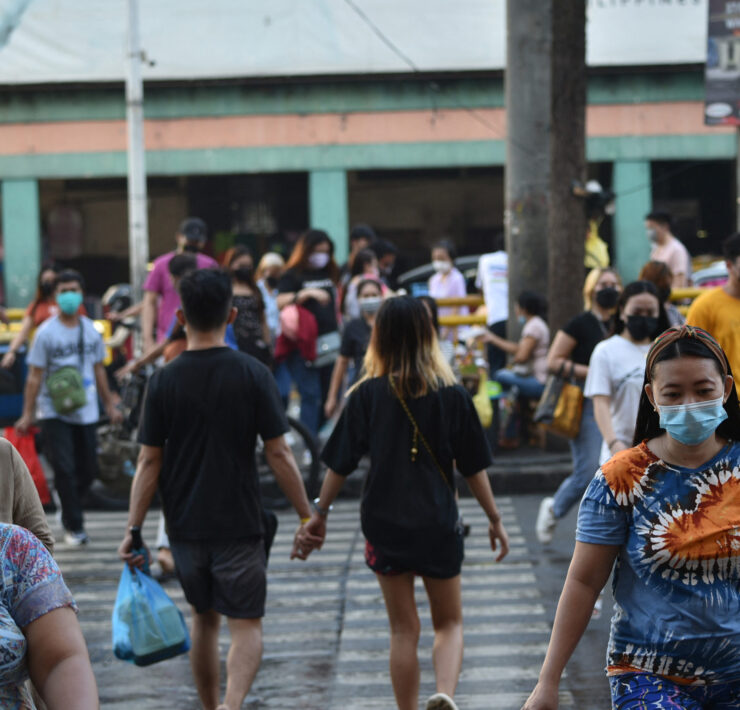Helping consumers revalue power and wealth: A cultural playbook for brands

Public awareness about corruption and social justice is at an all-time high across much of Asia, including the Philippines. Wealth and power, once flaunted without question, are now being cast in a more critical light.
For years, social media made ostentatious displays of wealth feel like routine. Few questioned the sources of that luxury, and many influencers posted without considering the meanings their images might carry.
Of course, there are still many Filipinos who have earned their comfort through hard work. But the default formula for gaining status and followers has rewarded spectacle: inherited privilege, material excess and rewarded the noisy or controversial over the authentic.
Is this merely a strategy to drive engagement? Or is it bravado born of a belief that no matter what you do, few are punished and Filipinos, ever forgiving, will soon forget?
For decades, status followed a simple triangle of visibility, hierarchy and materialism. Brands thrived by selling aspiration through logos, extravagance and exclusivity.
Today, consumers are watching more closely, caring more deeply about integrity, fairness and what value truly means.
For marketers, this is a signal to rethink how they connect: what people now prize, how status is expressed and how brands can respond.
That old triangle is losing its shine. In its place emerges a new square defined by four interrelated principles: sense, substance, signal and subtlety. This is the 4S Framework, a map for marketers who want to build meaningful connections in a more socially conscious, more skeptical marketplace.
Sense: Cultural and social awareness
Marketers must read the moral “soundscape” with the care of an anthropologist.
Filipino consumers are hyper-aware of inequality, corruption, environmental harm and the hidden power relations behind everyday products.
In this climate, a brand that misreads the cues: posting cheerful promotions during a national tragedy or borrowing colonial imagery, comes across as tone-deaf. It’s a failure to attune to the community’s emotional pitch. Cancel culture turns such lapses into viral lessons, punishing not only what is said but the character it reveals.
To avoid this, brands must show genuine empathy by acting responsibly and consistently, proving through concrete practices, not just slogans, that they understand and share the values of the people they serve.
This is where Pickup Coffee finds its rhythm. A homegrown Filipino brand, Pickup has carved out a space that aligns cultural sensitivity with commercial savvy. Known for its affordable yet quality brews, Pickup doesn’t just sell coffee; it delivers on substance.
Its direct farmer partnerships, equal employment policy, aggressive expansion infused with local flavor and committed community engagement tell a story of ethical intent and grounded strategy.
Substance: authenticity and transparency
For many, authenticity is not a style; it is a social contract. Consumers, shaped by a history of colonial mistrust and contemporary scandals, read every brand claim as part of a larger cultural performance. Anthropologically, advertising is a ritual of meaning-making. When a brand speaks, it signals its values and its place in the moral economy. Filipinos now expect these signals to be backed by concrete action—ethical labor, sustainable sourcing, verifiable community work—because empty words break the collective trust. Transparency is no longer a competitive edge but a cultural baseline. To “walk the talk” is to honor kapwa (peers), the shared self that binds society.
Take SM Supermalls as an example. Beyond retail and entertainment, SM has established a solid reputation for corporate social responsibility, especially in times of disaster. Their large-scale donations and relief efforts during calamities like typhoons show a level of commitment that goes beyond marketing spin.
Signal: Identity as a cultural statement
Consumer choice is a form of social signaling, a way of telling the world who we are and what we stand for. In the Philippines, where status once rested on visible wealth, the new prestige comes from values enacted in everyday consumption.
Buying from local artisans, choosing sustainable materials or supporting social causes are not just purchases but performances of moral identity, embedding the self in a wider community of care.
Anthill Fabric Gallery in Cebu illustrates this shift. Its upcycled fabrics and partnerships with marginalized weavers transform a simple bag into a statement of solidarity and ecological responsibility. Each piece carries a story of labor, heritage and environmental consciousness, symbols far richer than any designer logo.
For marketers, the lesson is clear: people are no longer buying objects to look successful; they are buying relationships that affirm their ethics. Brands that fail to grasp this social choreography risk being read as tone-deaf.
Those that align with the lived values of their audience tap into a deeper form of status, one rooted in shared purpose and cultural meaning.
Subtlety: Quiet power as cultural capital
In an anthropological view, luxury is never just about objects; it is about the codes of distinction that signal taste, refinement and moral positioning.
In our society, where social consciousness and self-awareness are prized, loud logos and ostentatious display now feel culturally off-key. The new elite status lies in quiet mastery: craftsmanship, restraint and meaning carried in the texture of a garment or the care of its making.
Designer Vania Romoff embodies this redefined prestige. Her minimalist silhouettes and slow-fashion ethos elevate process over spectacle.
For marketers, subtlety demands more than soft visuals, it requires sensitivity to shifting cultural signals. To oversell is to misread the audience. Brands that allow quality, story and purpose to speak in understated ways tap into a deeper hierarchy of value, where quiet power resonates more than any logo could.
The social media reality check
Social media is both a megaphone and a watchdog. It empowers consumers to hold brands accountable in real time, turning every post, product, or partnership into a public performance.
Anthropologist Victor Turner argued that culture is expressed through “performances” where people create and share meaning, much like a marketing campaign or influencer moment that audiences read for clues about values and intentions.
Pierre Bourdieu, who studied how power operates in everyday life, would call the digital space a field where different kinds of “capital”: money, social connections, cultural taste, even symbolic prestige, are constantly displayed and contested.
Within this field, habitus—the ingrained habits and preferences of both marketers and audiences—guides what feels tasteful, credible or tone-deaf.
And as Sherry Ortner’s practice theory reminds us, these posts are not just reflections of culture; they are actions that can reinforce or quietly reshape social norms.
A single misstep, a hollow claim or a performance that violates the unspoken codes of the field can quickly become a viral liability. Conversely, brands that embody the 4S principles—sense, substance, signal and subtlety—generate capital beyond sales. They accrue trust, symbolic prestige and community loyalty.
The era of loud status symbols is giving way to a marketplace where meaning and mindful consumption are the new currencies. Marketers who recognize this transformation, and design their strategies as situated performances within these shifting fields, can shape the future of influence in the Philippines with both cultural acuity and ethical depth.
Chiqui Escareal-Go is a marketing anthropologist. Josiah Go is a business thought leader. They serve as CEO and chair, respectively, of Mansmith and Fielders Inc.





















